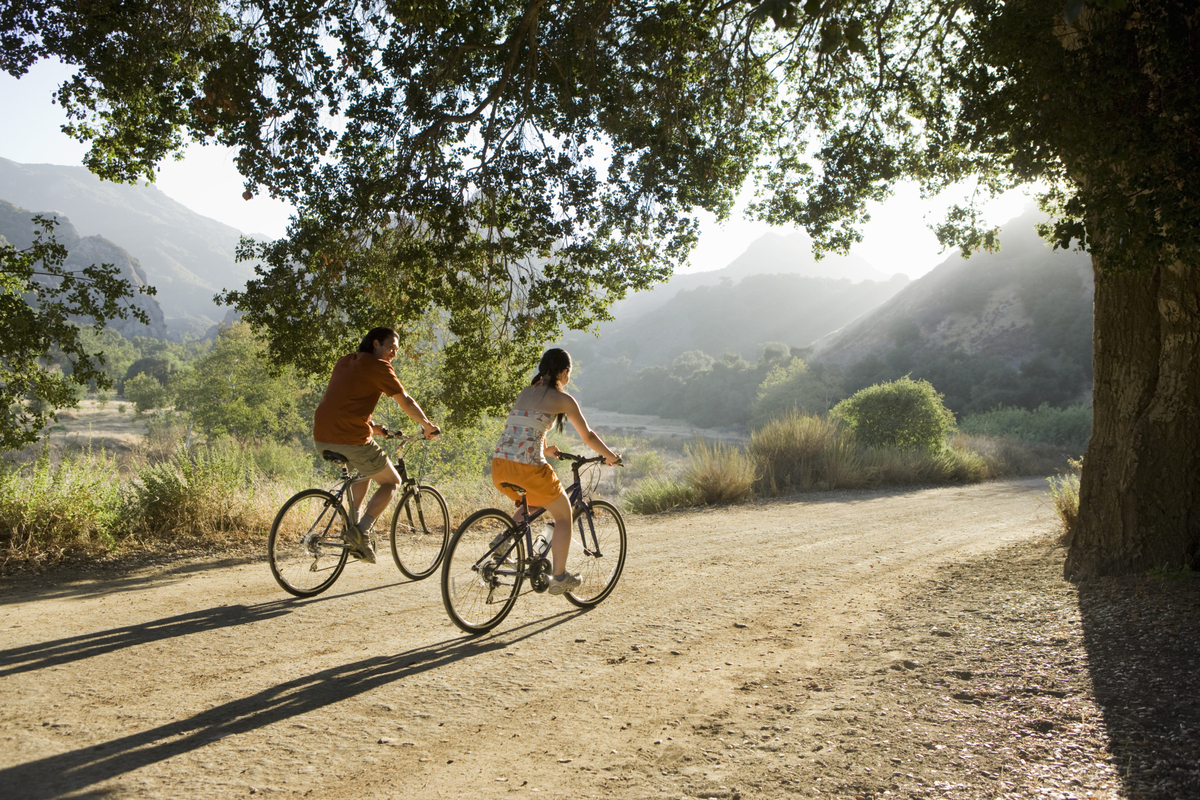
Want to Improve Your Relationships? It’s as Easy as Riding a Bike.
Improving our relationships can get pretty frustrating. You may find yourself looking for tips or tricks that will help renew your connection with your spouse, child, or friend, only to find that no matter what good advice you get, when you’re in the moment you find yourself doing the same things you’ve done before. Fortunately, this problem doesn’t mean you’re off-your-rocker… just human. I’d like to share some thoughts that may help clarify why what we think and what we do in our relationships are so different, and what to do about it.
Do you remember learning to ride a bike? I picture a 5-year-old girl in the street with Dad, crawling with nerves and excitement. She’s covered head to toe with various padding – a helmet, some shin guards, elbow pads, and gloves. Both Dad and daughter know this process will most likely involve lots of practice and maybe some scrapes and bruises before she’s able to ride on her own.
Consider what it would be like if Dad had instead tried to teach his daughter to bike by giving her information about riding a bike. Maybe he sits his daughter down and teaches her all about the mechanics of balancing a bike, how to shift her body weight and turn the handlebars. You can imagine what it would be like when she finally hopped up on the bike seat. She’d have just as much trouble as if she hadn’t studied!
This is because knowing cognitively about riding a bike isn’t the same as procedurally knowing how to ride a bike.
It’s interesting that so often relational skills are taught to us cognitively. “Be nice to your brother”, “You really ought to be less self-centered”, “The seven keys to success in your marriage are…”. These bits of head-knowledge are accessed in the left hemisphere of the cortex. In any situation, this area is almost the last to receive a signal.
By contrast, the limbic system, which is involved in how we feel and act in relationships, is one of the first brain areas to receive signals from our senses. How we act in relationships has less to do with what we “think” or “believe”, and more to do with the automatic ways we learned to feel, respond, and make sense of relationships slowly over time. This learning doesn’t happen over a blog post or in a book, but in real-time in the small, daily interactions we have with others. Like learning to ride a bike, we pick up subtle signals from the relationship that help us balance… or, navigate, through trial and error. We feel, we act, we evaluate, and do it all over again. This kind of procedural learning changes the automatic, procedural pathways in our limbic system.
So what can you do about it?
Like riding a bike, improving your relationships has less to do with google-searching and book-studying, and more to do with suiting up and hitting the asphalt. It means having the determination to risk scratching an elbow, and to practice something new until it feels natural. Here are some bike-riding guidelines that might help.
- Get suited up. Talk about what you’d like to do together. Tell the other person about how you’d like your relationship to grow. It might sound like, “I’ve been thinking about the way we communicate, and I’d like to learn to be more transparent with you.”
- Take risks. Take a risk to do something different in the relationship. Some ideas might be to let yourself share your opinion, or to ask questions before talking, or to share some anger or sadness you might usually keep silent.
- Evaluate. Check in with the other person after you’ve taken a risk. It might sound something like, “You know how I shared how I felt with you? I felt nervous speaking up because I didn’t know how you’d take it. How was that for you?”
- Repeat. Like riding a bike, procedural memory takes lots of practice. Take your partner’s feedback into account and try again.
- Get some coaching. Re-learning new ways of relating takes a lot of work. Consider making an appointment with a therapist who can create a safe environment for you and your spouse, child, or friend to learn some new skills.